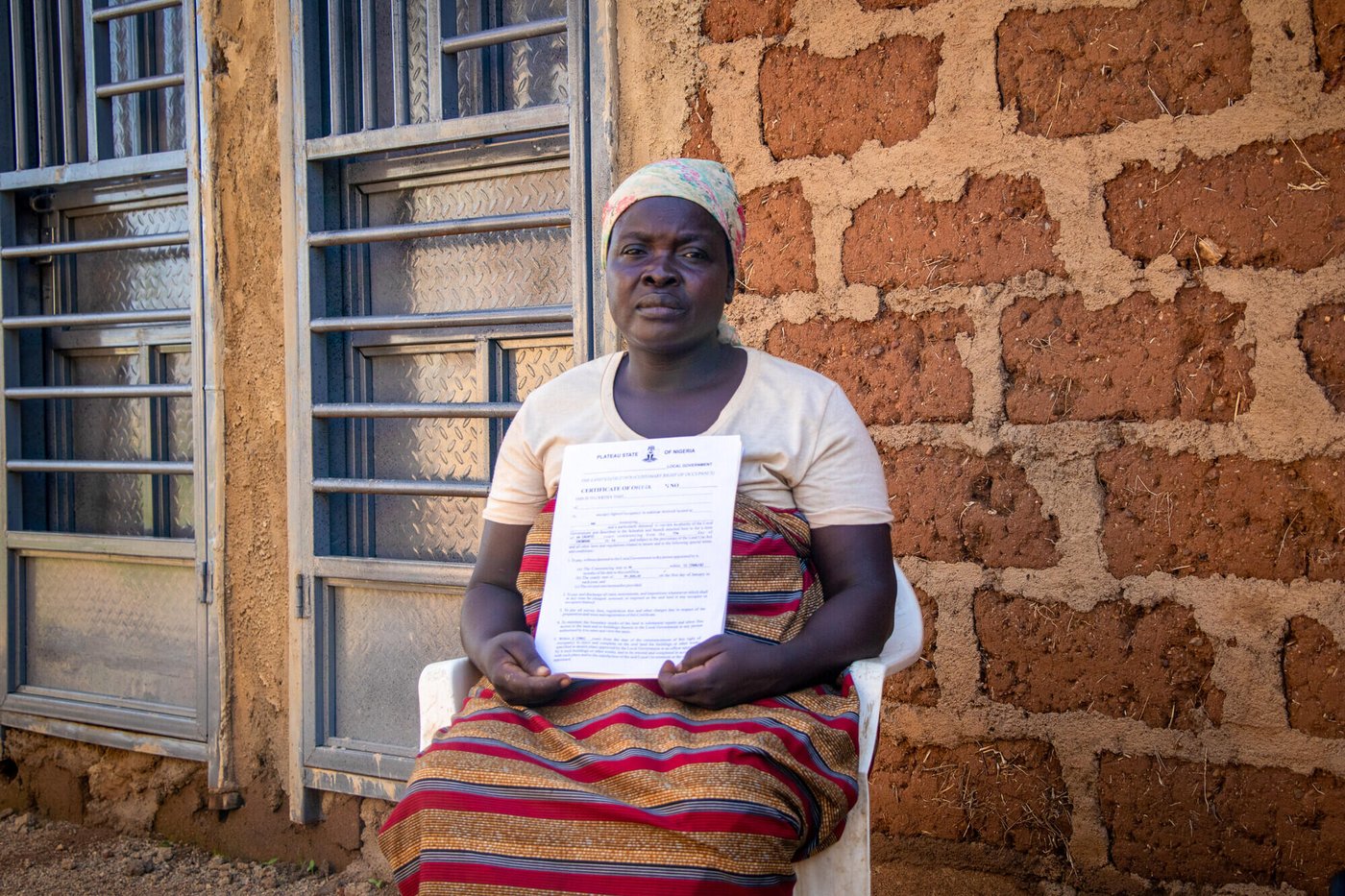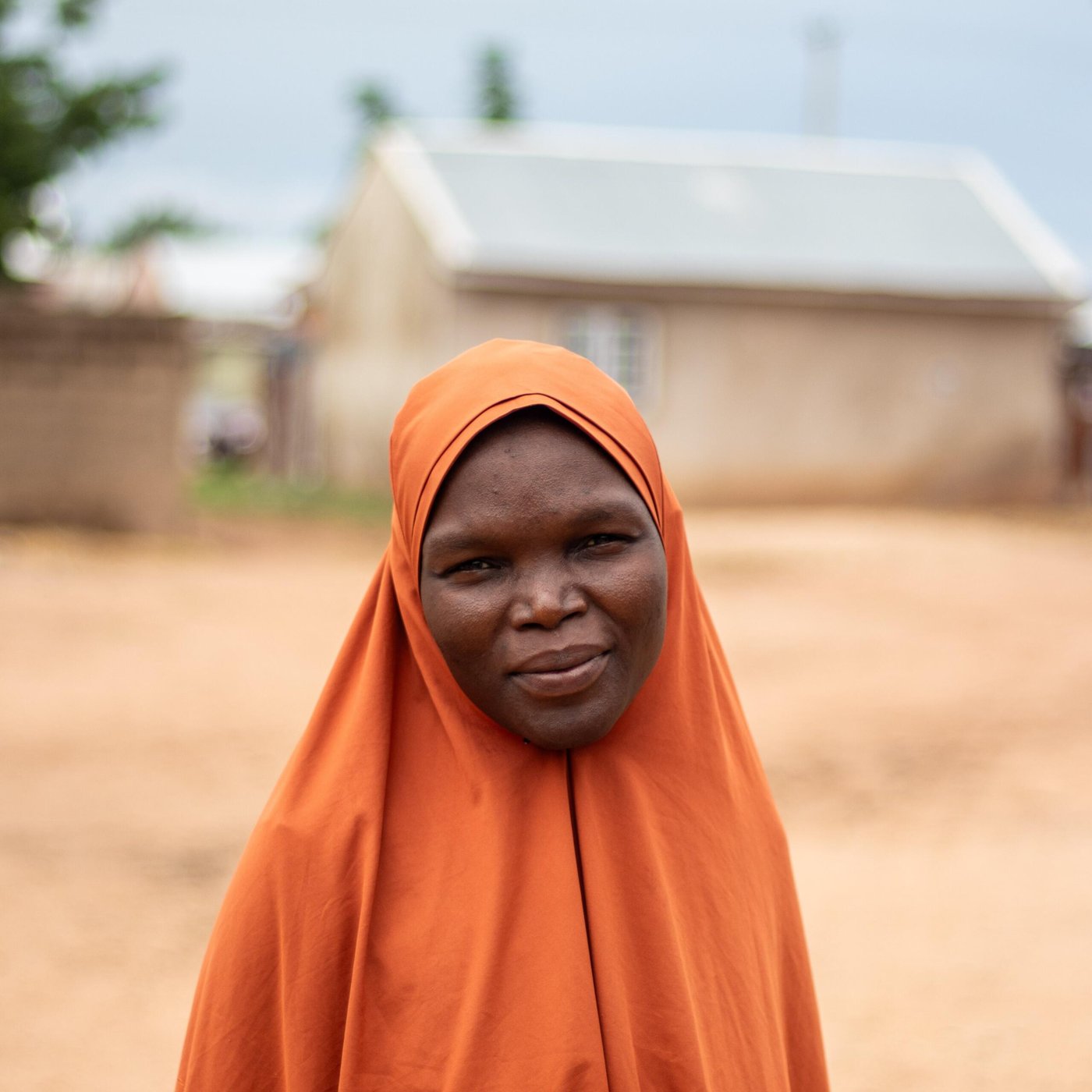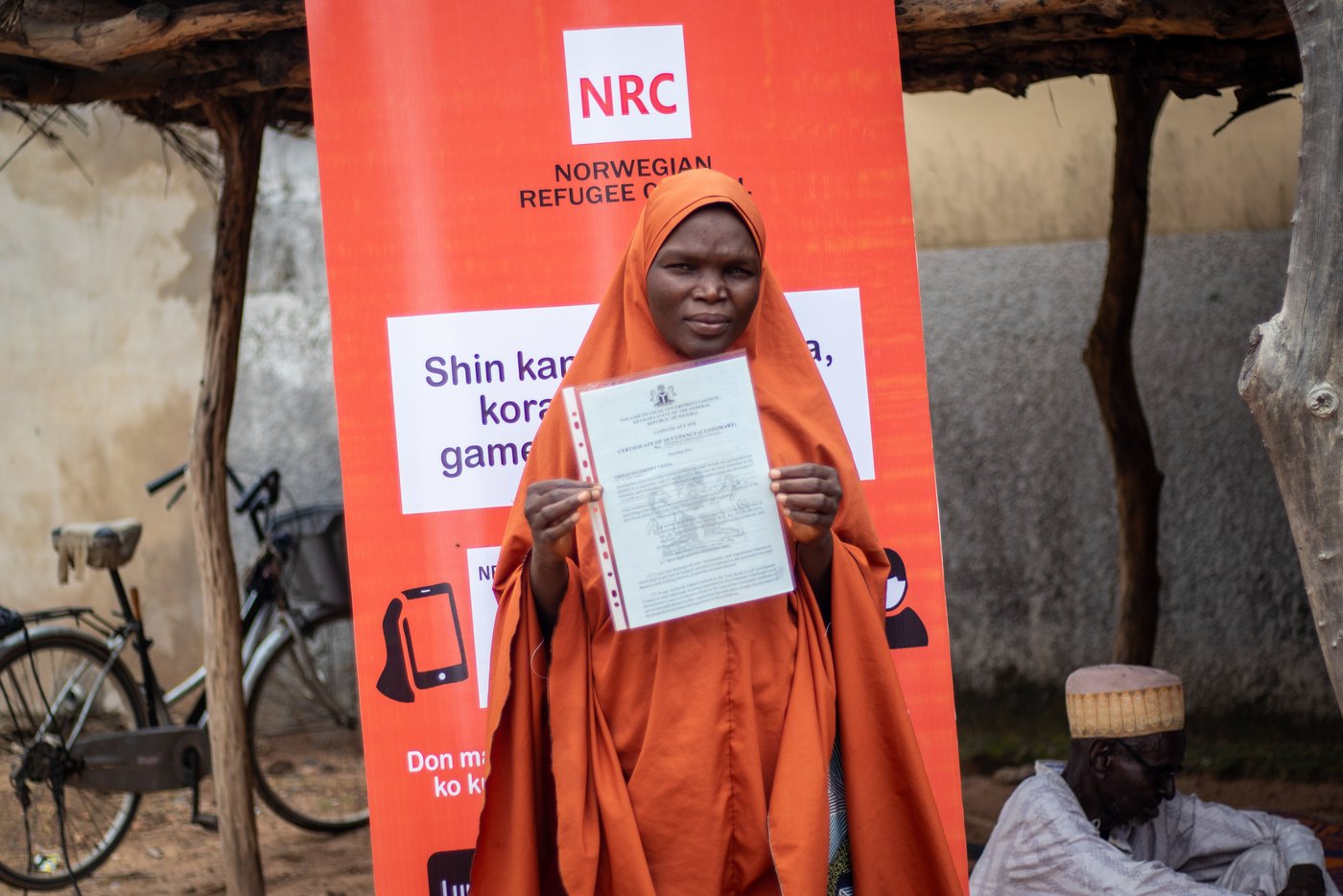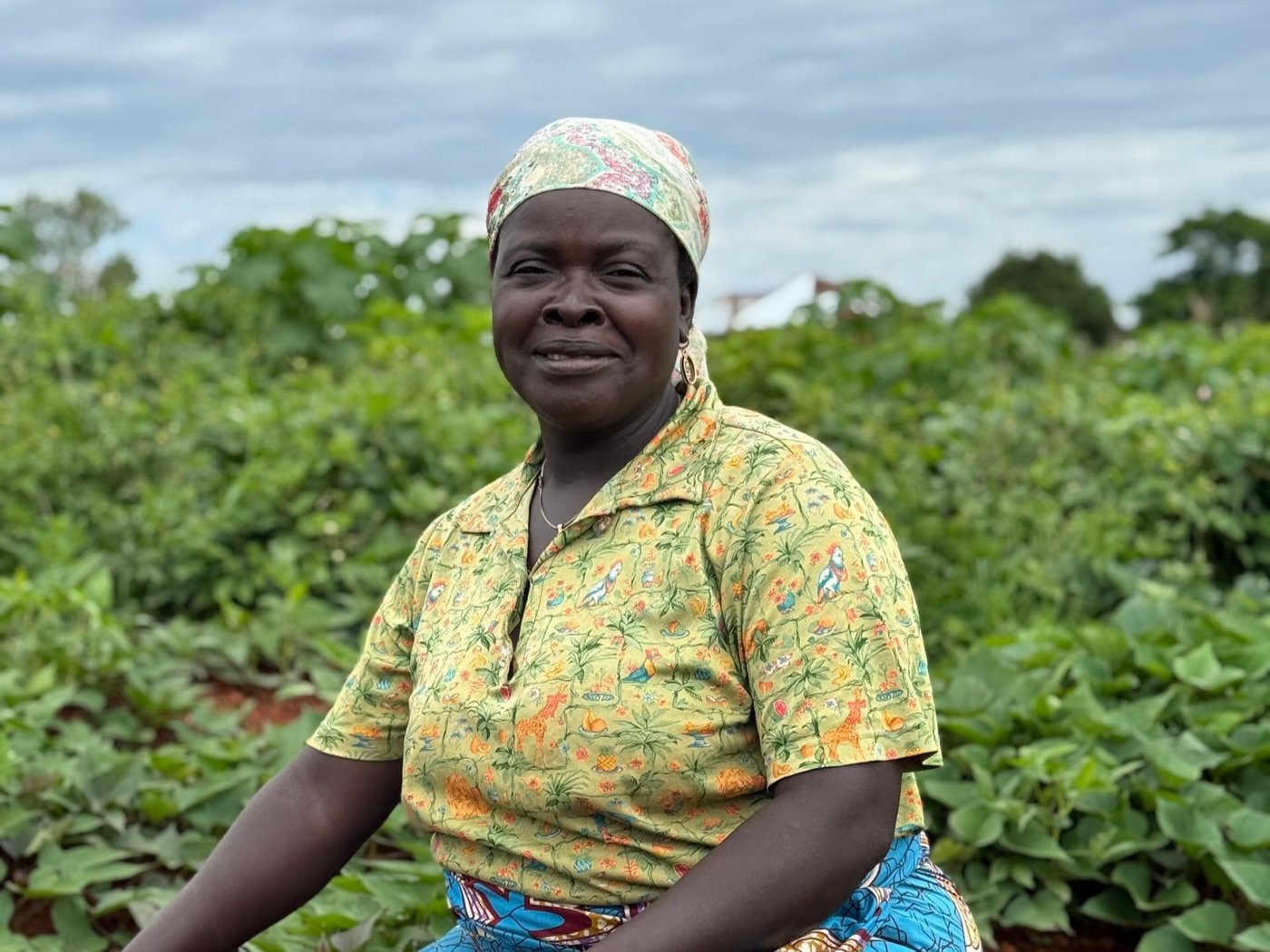To bridge this gap, the Norwegian Refugee Council (NRC) works in close collaboration with the ministries of lands in various Nigerian states. Together, we support vulnerable populations, particularly displaced people and women, to secure land documentation and their right to tenure.
Two women, Sarah Ishaya and Aisha Ahmadu, are among those we have supported to access their land documents.
From conflict to confidence: Sarah’s story

Sarah Ishaya, 50, a farmer and petty trader in Plateau State, had farmed on her land for years. She knew the importance of formal documentation, but the cost was beyond her reach. She also thought, that since it was farm land, there was no need to get documents to secure it.
"I always knew I needed documents for my land," Sarah says. "But I simply couldn't afford them. Without papers, I was always in arguments with neighbours because the boundaries weren’t clear."
Her story reflects a common reality for many women in rural parts of Nigeria, where land passed down informally or purchased without formal titles leaves them vulnerable to disputes and dispossession.
Now there’s no more conflict: everyone knows where my land starts and ends.Sarah Ishaya
With funding from the German Federal Ministry for Economic Cooperation and Development through the German Agency for International Cooperation, we linked Sarah with the Ministry of Lands in Plateau State. Her plots were assessed and boundaries determined. Finally, she received official documentation confirming her ownership.
"The day I got my land papers, I felt peace," she says. "Now there’s no more conflict: everyone knows where my land starts and ends."
But Sarah’s challenges go beyond documentation. Despite her father owning vast land, she was never allowed to inherit it. In Nigeria, only 10 per cent of women own land, despite accounting for 70 to 80 per cent of agricultural labour and output in the country (source: National Women’s Economic Empowerment (WEE) Policy and Action Plan, May 2023).
"Only my brothers got land. I had to buy my own. Now they’re all gone, and I may never be able to claim any of my father’s land," she says, a reflection of the deeply entrenched customs that restrict women’s inheritance rights.
Still, Sarah sees hope for her children’s future: "At least my land is secure now. Whether I am here or not, my children won’t have to fight for it."
Reclaiming control of her land: Aisha’s story

Aisha Ahmadu, 35, lost everything when conflict forced her to flee her home several years ago. With five children to care for, she found herself in Yolde Pate, Adamawa State, living in uncompleted buildings and doing manual labour just to survive.
"After I fled, I found out that my house had been burnt," she recalls. "I had nothing. I worked in people’s homes to save a little money, and eventually, I bought some land two years ago."
Buying the land was just the beginning. Like others in her community, she was given a customary document signed by the local leader. But she knew this wasn’t enough.
I’ve started building our home on the land. It feels like I’ve taken back control of my life.Aisha Ahmadu
"I heard the proper documents cost up to 300,000 naira [equivalent to 200 US dollars]. That kind of money was impossible for me. It felt like only rich people could get government papers for their land," she says.
Aisha had also heard of cases where displaced people like herself had lost their land to grabbing. That fear that constantly loomed over her.
"I was always worried. What if someone came and claimed my land? What if I lost it?"
Through our Housing, Land and Property programme, with funding from the US Bureau of Humanitarian Assistance, we supported Aisha to navigate the process and ultimately obtain the necessary legal documentation for her land.
"Now, I’m not afraid anymore," she says, beaming. "I’ve started building our home on the land. It feels like I’ve taken back control of my life."

Driving transformative change for women and girls
NRC’s work in Nigeria doesn’t end with securing documents. In all states , where we work, we are supporting displaced women to obtain land tenure documents that safeguard their land and housing rights. To make this possible, we work with authorities to waive the usual fees, ensuring women can access their rights without financial hardship. In Plateau State, we are also engaging policymakers to reform land governance frameworks so that they better protect displaced women’s right to own and inherit land. .
In Adamawa and Borno states, thousands of displaced women and their families risk losing proof of their land and homes when paper records are destroyed during conflict or flooding. To change this, we are working side by side with state land authorities to digitise land records and train staff in using modern mapping tools. By supporting the Adamawa Ministry of Lands and the Borno Geographic Information Service (BOGIS), we are helping build stronger, more transparent land administration systems. This not only protects vital tenure records from being lost but also gives displaced families greater security and hope for recovery.
We believe that land is a foundation for recovery. But without policies that protect women’s rights to own and inherit land, the cycle of vulnerability continues.
Through both direct support and advocacy, we are committed to making land tenure a reality – not just for a few, but for every woman and every displaced family that deserves a place to call home.
Sign up to our newsletter to read more stories from around the world.


